Your Cart is Empty (Time to go shopping!)

Send a Gift Message at the Perfect Time
Send a personalized gift note to your recipient. Enter your message, let us know when to send it, and we'll email your message at the time of your choice.
This is the fifth and final part of a five part series with award winning Chef Todd Stein. This post contains the recipe and directions for making Cacio e Pepe. See the previous posts for helpful tips and techniques.
Here is Chef Stein’s take on the classic Cacio e Pepe recipe. It’s actually hard to find two chefs that agree on how to make it, so this is Todd’s particular take on the dish. It's obviously a wonderful showcase for The Reluctant Pepper. As Chef Stein said, it just wouldn't be nearly as good with another pepper. But this dish is more than the pepper, too. Something magical happens when the oil, butter and cheese emulsifies in the pan. You’ll definitely taste the heat from the Tellicherry, but it shouldn’t be overpowering. The ingredients are basic, but the combination is way more than the sum of its parts. It exemplifies why Chef Stein fell in love with Italian cooking.
Prep Time: 20 minutes Serves: 4-6 Chef Todd Stein’s take on the classic
Kosher salt 16 oz. dried pasta (such as spaghetti, tagliolini or bucatini)
1 1/4 tsp. coarsely ground Reluctant Trading Experiment Organic Tellicherry Peppercorns (duh!)
1/3 lb. unsalted butter, cubed, divided
1 1/2 tbsp. extra virgin olive oil
1/4 cup finely grated Parmesan or Grana Padano (use slightly less than 1/4 cup)
1/4 cup finely grated Pecorino Romano
4 tbsp. pasta water to thin sauce
Bring 3 quarts water to a boil in a 5-qt. pot. Season the water only after boiling until it tastes like the ocean; add pasta and cook, stirring occasionally, until about 2 minutes before tender.
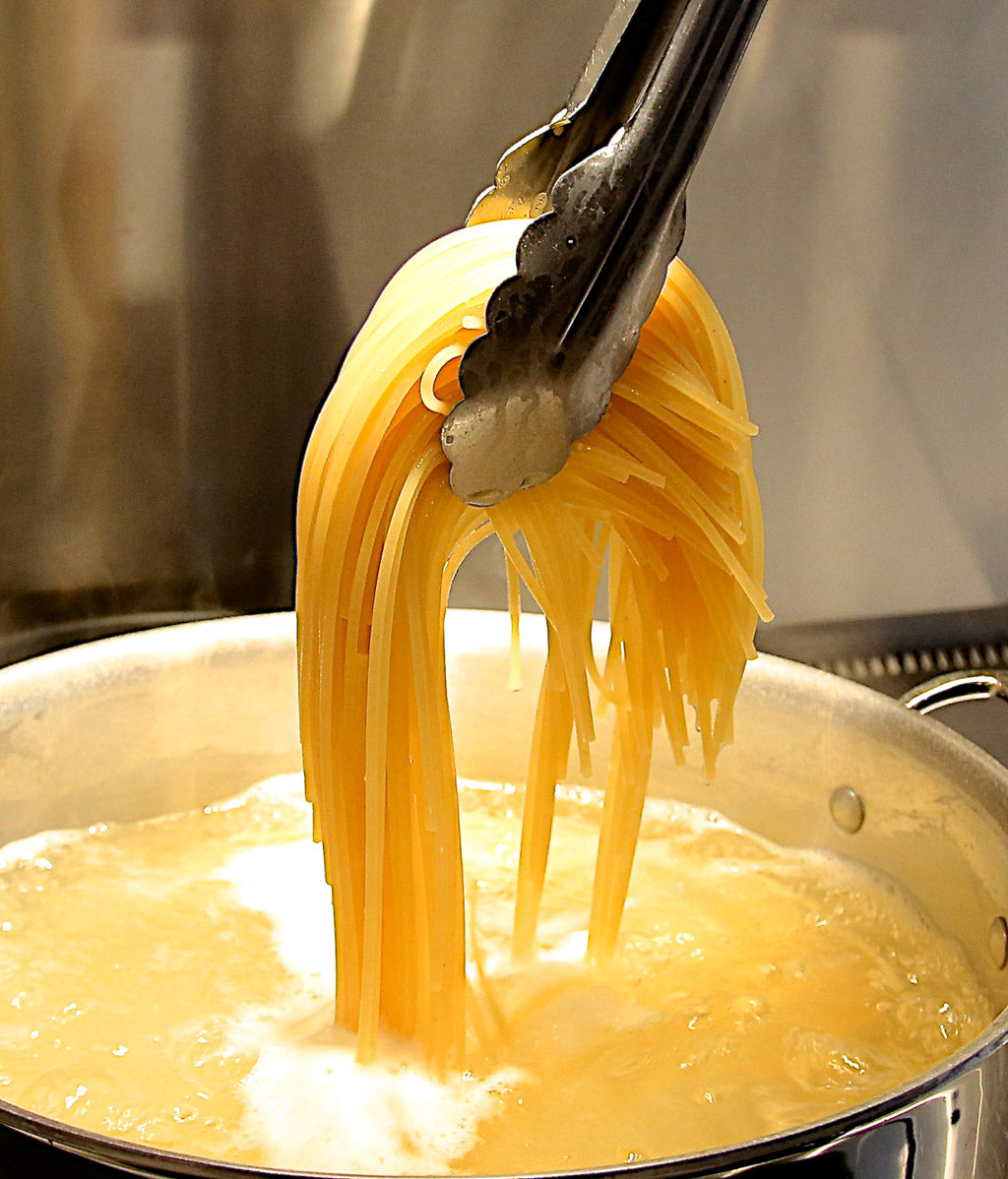
Salt the water until it tastes like the ocean
Meanwhile, toast the coarsely ground Reluctant Trading Pepper in a large sauté pan over low to medium heat for several minutes until aromatic.
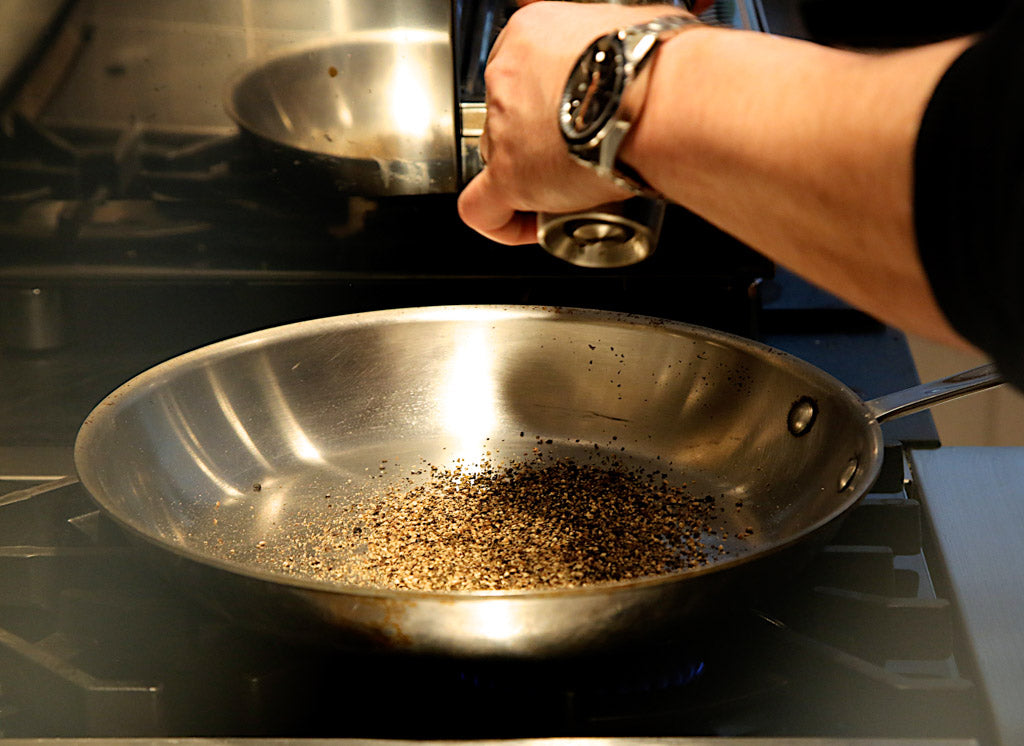
Stop the toasting activity with a couple tablespoons of pasta water.
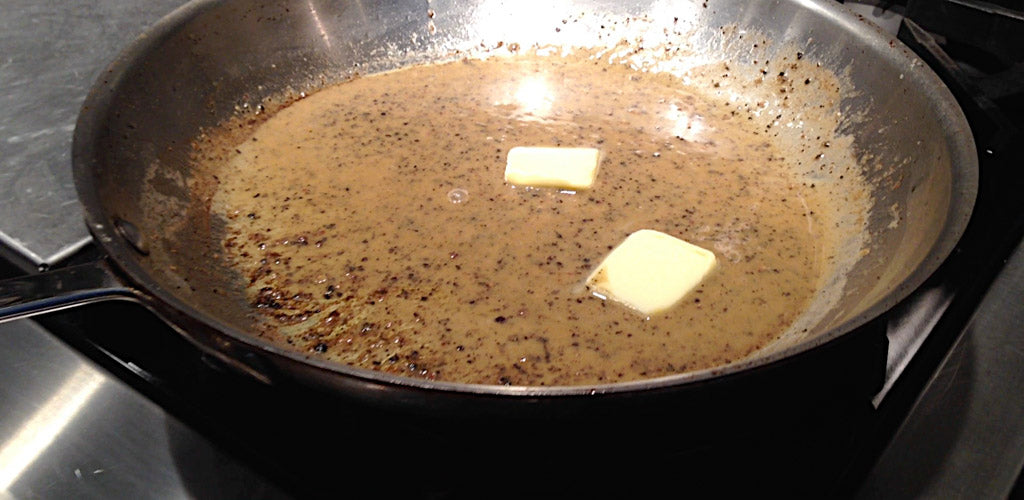
Melt the butter with the pepper, taking pan on and off low to medium heat.
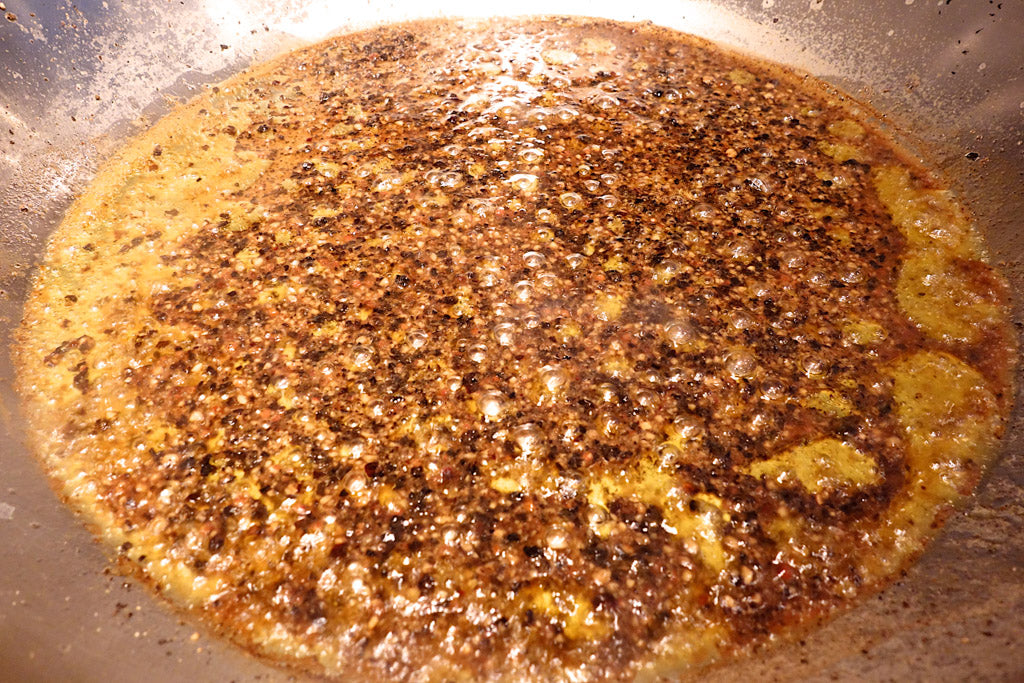
Add the olive oil. Careful not to break the sauce. Add pasta water to the sauté pan to thin. Take sauté pan on and off low to medium heat.
With two minutes left to go before the pasta is al dente, remove the pasta from the pot, drain and directly add it to the sauté pan with the sauce. Alternate pan on and off the burner while mixing the pasta with the sauce. Add pasta water as needed to thin.
Add the Pecorino cheese first, stirring and tossing with tongs until melted, alternating on and off the burner. Remove pan from heat; add Parmesan, stirring and tossing until cheese melts, sauce coats the pasta, and pasta is al dente. (Add more pasta water if sauce seems dry.)
Confused? Don't worry! We made a video to help you understand how to finish the sauce.
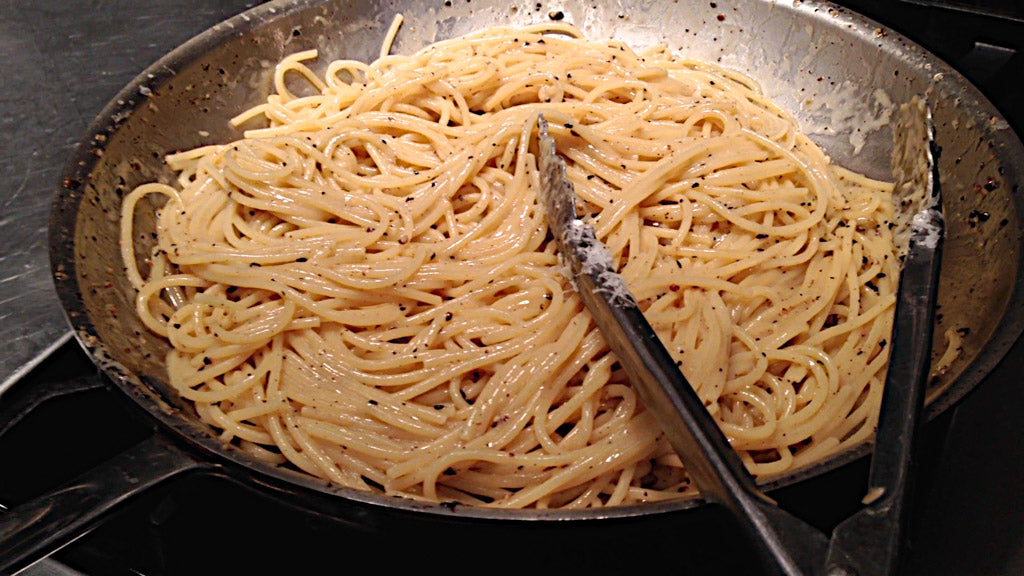
Just remember that the pasta should be al dente, meaning firm, but not hard. It shouldn't be mushy or you've gone too far.
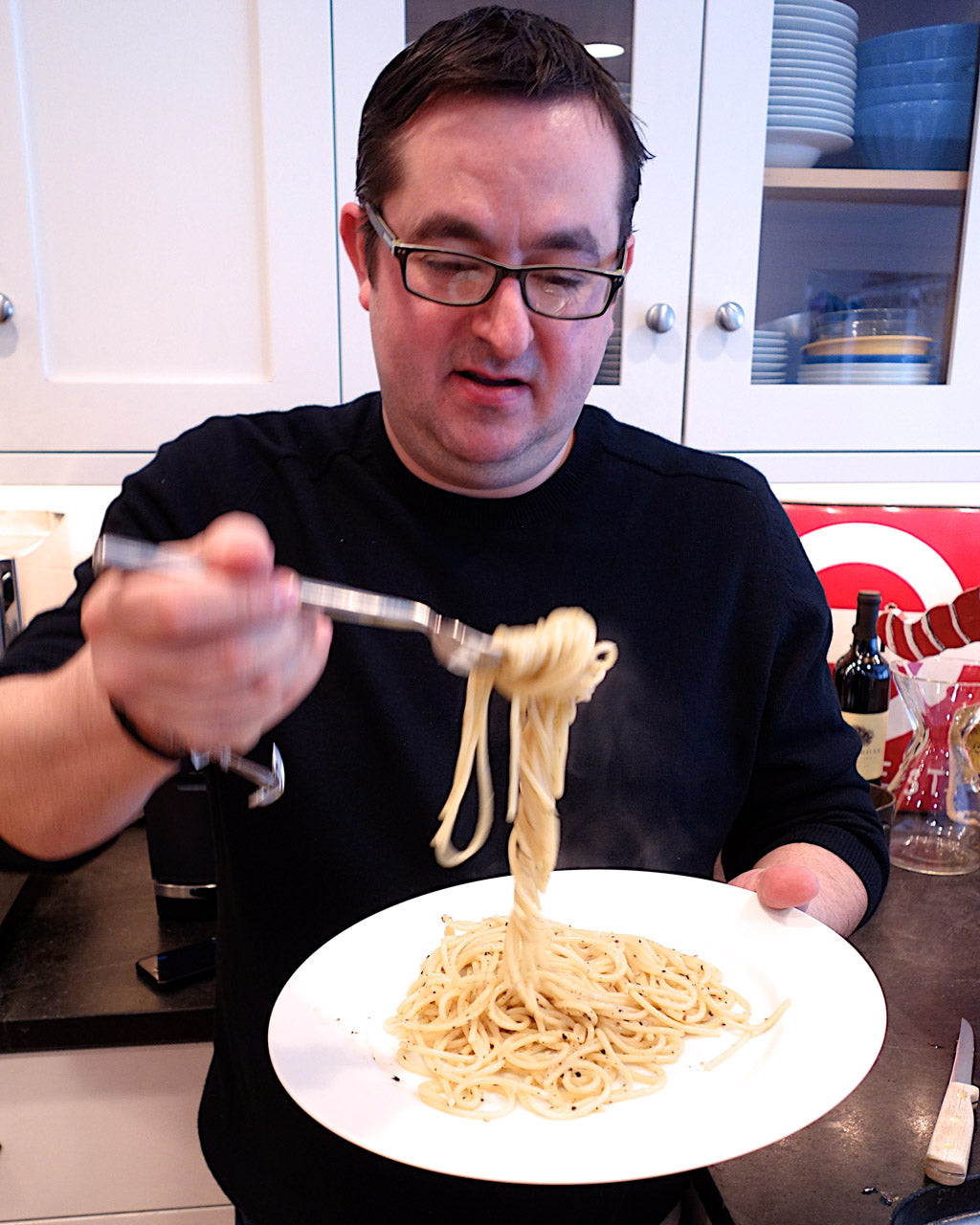
This was some seriously good Cacio e Pepe that Chef Stein whipped up. Simple ingredients, but not simple to make. Takes a little practice, but you'll get it. Wow, is it good!
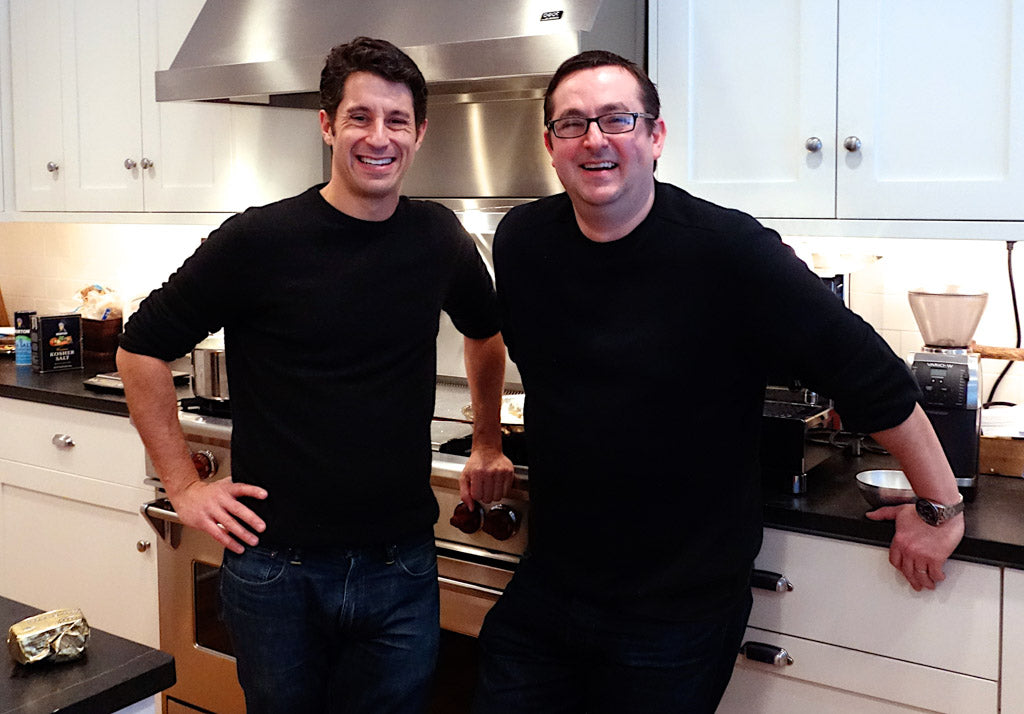
No, we didn't plan out our outfits. Coincidence. I swear.
A huge thank you to Chef Stein again for an incredible recipe and for taking the time to share so much knowledge with us. Please let us know how your Cacio e Pepe turns out. (And just in case you were wondering, I swear we didn't plan out our outfits ahead of time.)
Buon Appetito!
Executive Chef Todd Stein and his intern for the day, Scott
Cooking with Chef Stein • Part 1 • I'm Not Worthy
Cooking with Chef Stein • Part 2 • Lost in the Supermarket
Cooking with Chef Stein • Part 3 • Home on the (Wolf) Range
Cooking with Chef Stein • Part 4 • Now We're Cooking
Like this post? Sign up for The Reluctant Trading Newsletter to keep up with the latest.